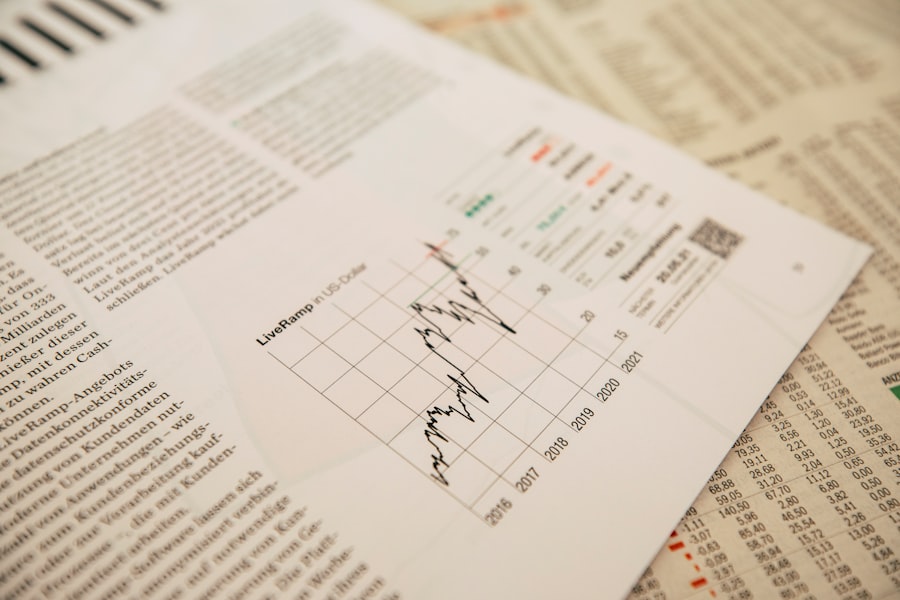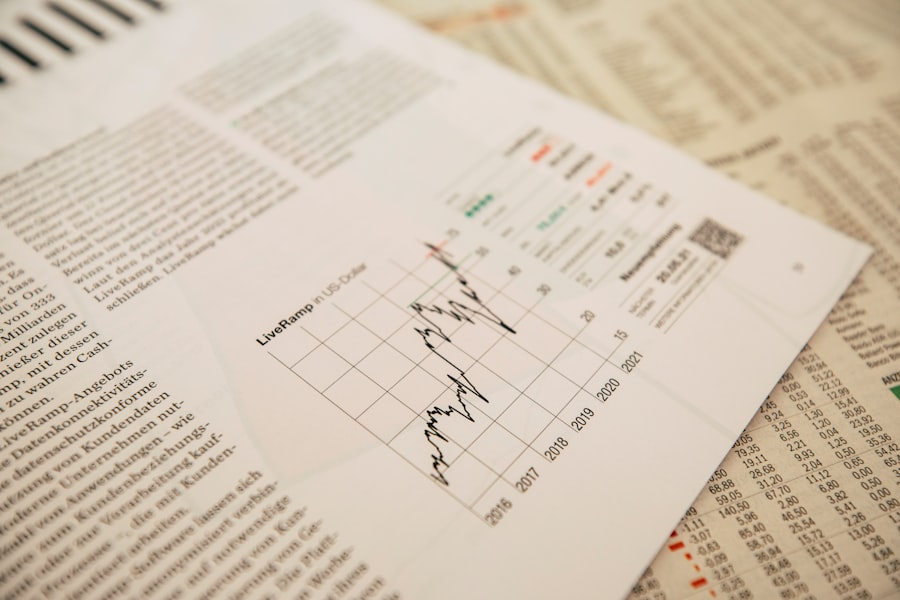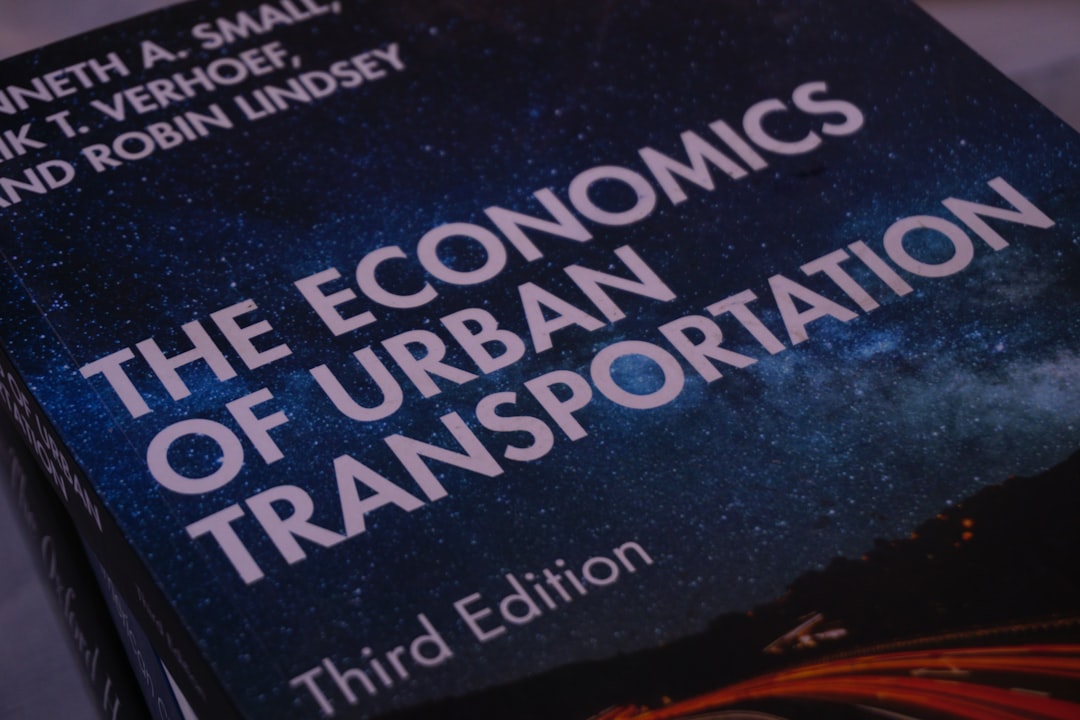Economic transition refers to the process through which an economy shifts from one state to another, often characterized by significant changes in production, consumption, and employment patterns. This transformation can be driven by various factors, including technological advancements, globalization, and shifts in consumer preferences. As economies evolve, they may move from traditional industries to more modern sectors, such as technology and services.
Understanding these dynamics is crucial for individuals and businesses alike, as it allows them to navigate the complexities of a changing economic landscape. The implications of economic transition are far-reaching. For instance, workers in declining industries may find themselves facing job displacement, while those in emerging sectors may experience new opportunities for growth and advancement.
Recognizing the signs of economic transition can help individuals prepare for the challenges and opportunities that lie ahead. By staying informed about market trends and shifts in consumer behavior, one can position themselves strategically to take advantage of the evolving economic environment.
Key Takeaways
- Economic transition is a natural part of the business cycle and understanding its impact is crucial for success.
- Identifying opportunities in a changing economy requires staying informed and being open to new possibilities.
- Adapting skills and expertise to meet the demands of a transitioning economy is essential for professional growth.
- Building a strong professional network can provide valuable support and opportunities during economic transitions.
- Developing a flexible mindset is key to navigating economic transitions and embracing change.
Identifying Opportunities in a Changing Economy
In a rapidly changing economy, identifying opportunities requires a keen eye and an adaptable mindset. Individuals must be proactive in seeking out new avenues for growth, whether through entrepreneurship, career advancement, or investment. This often involves analyzing market trends and understanding where demand is shifting.
For example, the rise of remote work has created a surge in demand for digital tools and platforms that facilitate collaboration and communication. Those who can recognize these trends early on may find themselves at the forefront of new business ventures or career paths. Moreover, identifying opportunities also involves understanding one’s own strengths and how they align with emerging market needs.
Individuals should take stock of their skills and experiences to determine how they can contribute to new industries or roles. This self-assessment can lead to innovative ideas for products or services that address current challenges faced by consumers or businesses. By being attuned to both personal capabilities and market demands, individuals can carve out unique niches for themselves in a changing economy.
Adapting Your Skills and Expertise

As the economy transitions, the need for adaptability becomes paramount.
This may involve acquiring new technical skills or enhancing existing ones to meet the demands of emerging industries.
For instance, professionals in traditional sectors may need to learn about digital marketing or data analysis to stay competitive. Embracing lifelong learning is essential in this context, as it enables individuals to pivot their careers in response to changing market conditions. Additionally, adapting skills goes beyond technical knowledge; it also encompasses soft skills such as communication, problem-solving, and emotional intelligence.
These attributes are increasingly valued in modern workplaces, where collaboration and innovation are key drivers of success. By honing both hard and soft skills, individuals can position themselves as versatile candidates who can thrive in various roles and environments. This adaptability not only enhances employability but also fosters resilience in the face of economic uncertainty.
Building a Strong Professional Network
| Metrics | Data |
|---|---|
| Number of Connections | 250 |
| Networking Events Attended | 15 |
| LinkedIn Connections | 500 |
| Referrals Received | 20 |
| Informational Interviews Conducted | 10 |
In times of economic transition, a robust professional network can serve as a valuable resource for individuals seeking new opportunities. Networking allows individuals to connect with others in their industry, share insights, and gain access to job leads or collaborations. Building relationships with peers, mentors, and industry leaders can provide critical support during periods of change.
Engaging with professional organizations or attending industry events can facilitate these connections and expand one’s network. Moreover, a strong professional network can offer diverse perspectives on navigating economic transitions. By interacting with individuals from various backgrounds and experiences, one can gain insights into different strategies for success.
Networking also fosters a sense of community, which can be particularly beneficial during challenging times. Individuals who actively cultivate their networks are often better positioned to seize opportunities as they arise and adapt to the evolving economic landscape.
Developing a Flexible Mindset
A flexible mindset is essential for thriving in a changing economy. Individuals must be open to new ideas, willing to embrace change, and ready to pivot when necessary. This adaptability allows them to respond effectively to unexpected challenges or opportunities that may arise during economic transitions.
Cultivating a flexible mindset involves challenging one’s assumptions and being receptive to feedback from others. Additionally, developing resilience is a key component of a flexible mindset. Economic transitions can be fraught with uncertainty, and individuals may encounter setbacks along the way.
Those who approach these challenges with a positive attitude and a willingness to learn from failures are more likely to emerge stronger and more capable. By fostering a mindset that embraces change rather than resists it, individuals can navigate the complexities of an evolving economy with confidence.
Leveraging Technology and Innovation

In today’s digital age, technology plays a pivotal role in shaping economic transitions. Individuals must leverage technological advancements to enhance their skills, improve productivity, and create new opportunities. This may involve adopting new software tools, utilizing online platforms for networking or learning, or exploring innovative business models that capitalize on emerging technologies.
Furthermore, staying informed about technological trends is crucial for identifying potential disruptions in various industries. For instance, advancements in artificial intelligence and automation are transforming job roles across sectors. By understanding these changes, individuals can proactively seek out training or education that aligns with future job requirements.
Embracing technology not only enhances individual capabilities but also positions individuals as forward-thinking professionals who are prepared for the future of work.
Embracing Continuous Learning
Continuous learning is a cornerstone of success in a changing economy. Individuals must commit to lifelong education to keep pace with evolving industry standards and practices. This commitment can take many forms, including formal education, online courses, workshops, or self-directed study.
By actively seeking out learning opportunities, individuals can expand their knowledge base and acquire new skills that enhance their employability. Moreover, embracing continuous learning fosters a growth mindset that encourages curiosity and exploration. Individuals who view challenges as opportunities for growth are more likely to take risks and pursue innovative ideas.
This mindset not only benefits personal development but also contributes to organizational success by fostering a culture of learning and adaptability within teams. In an era where change is constant, those who prioritize continuous learning are better equipped to thrive amidst uncertainty.
Managing Financial Risks and Investments
Economic transitions often come with financial risks that individuals must navigate carefully. Understanding how to manage these risks is essential for maintaining financial stability during periods of change. This may involve diversifying investments, creating emergency savings funds, or seeking professional financial advice to make informed decisions about asset allocation.
Additionally, individuals should be proactive in assessing their financial goals and adjusting them as needed based on changing circumstances. For instance, those transitioning careers may need to reevaluate their income expectations or consider alternative sources of revenue during periods of job searching or retraining. By taking a strategic approach to financial management, individuals can mitigate risks associated with economic transitions while positioning themselves for long-term success.
Balancing Work and Life During Transition
Navigating an economic transition can be demanding, often blurring the lines between work and personal life. Individuals must prioritize finding a balance that allows them to pursue professional goals while maintaining their well-being. This balance is crucial for sustaining motivation and preventing burnout during challenging times.
Establishing boundaries between work and personal life is essential for achieving this balance. Individuals should set aside dedicated time for self-care, family, and leisure activities to recharge mentally and physically. Additionally, practicing mindfulness techniques can help individuals manage stress and maintain focus amidst the uncertainties of economic transitions.
By prioritizing work-life balance, individuals can enhance their overall quality of life while remaining committed to their professional aspirations.
Seeking Mentorship and Guidance
Mentorship plays a vital role in navigating economic transitions successfully. Seeking guidance from experienced professionals can provide valuable insights into industry trends, career development strategies, and effective decision-making processes. Mentors can offer support during challenging times by sharing their own experiences and lessons learned along the way.
Moreover, mentorship fosters accountability and encourages individuals to set clear goals for their professional development. Regular check-ins with a mentor can help individuals stay focused on their objectives while providing encouragement during periods of uncertainty. By actively seeking mentorship opportunities, individuals can gain access to a wealth of knowledge that enhances their ability to navigate economic transitions effectively.
Creating a Long-Term Plan for Success
A long-term plan is essential for achieving success amidst economic transitions. Individuals should take the time to define their career goals and outline actionable steps toward achieving them. This plan should consider potential obstacles that may arise during transitions while also incorporating strategies for overcoming them.
Additionally, regularly revisiting and adjusting the long-term plan is crucial as circumstances change over time. Flexibility within the plan allows individuals to adapt their strategies based on new information or shifts in the economic landscape. By creating a comprehensive long-term plan that aligns with personal aspirations and market demands, individuals can navigate economic transitions with purpose and direction.
In conclusion, understanding economic transitions is vital for identifying opportunities in a changing economy. By adapting skills, building networks, developing flexible mindsets, leveraging technology, embracing continuous learning, managing financial risks, balancing work-life dynamics, seeking mentorship, and creating long-term plans for success, individuals can position themselves effectively amidst uncertainty. The journey through economic transition may be challenging; however, those who approach it with resilience and adaptability are likely to emerge stronger on the other side.
A valuable resource in this domain is the “Economic Transition Playbook,” which offers strategic insights into navigating these changes. For those interested in exploring related concepts, the article on How Wealth Grows provides an in-depth analysis of wealth accumulation and distribution, which are key components of economic transitions. This article complements the playbook by offering a broader perspective on how economic shifts can impact wealth dynamics across different sectors.
WATCH THIS! The AI Paradox: Who Buys the Stuff When Nobody Has a Job?
FAQs
What is an economic transition playbook?
An economic transition playbook is a comprehensive guide or set of strategies designed to help countries or regions navigate the process of transitioning from one economic system to another. This may include transitioning from a centrally planned economy to a market-based economy, or from a resource-based economy to a knowledge-based economy.
What are the key components of an economic transition playbook?
Key components of an economic transition playbook may include policy recommendations, institutional reforms, investment strategies, and capacity-building initiatives. The playbook may also address issues such as privatization, deregulation, trade liberalization, and social safety nets.
Why is an economic transition playbook important?
An economic transition playbook is important because it provides a structured approach to managing the complex process of economic transition. It can help mitigate potential risks and challenges, and guide decision-makers in implementing effective reforms to support sustainable economic development.
Who uses an economic transition playbook?
An economic transition playbook may be used by government officials, policymakers, international organizations, and other stakeholders involved in the economic development and transition process. It can also be a valuable resource for researchers and analysts studying economic transitions.
What are some examples of successful economic transitions?
Examples of successful economic transitions include the transition of several Eastern European countries from centrally planned economies to market-based economies after the fall of the Soviet Union, and the economic transformation of South Korea from a war-torn, agrarian society to a modern, industrialized economy. Each of these transitions involved a combination of policy reforms, investment strategies, and institutional changes.
